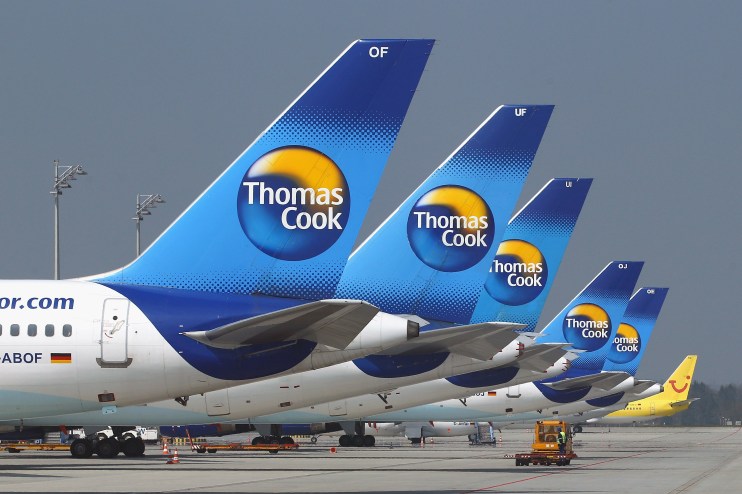Thomas Cook ‘scrambles to seal rescue deal’ amid concerns over bondholders

Troubled travel company Thomas Cook is said to be looking to delay a pivotal bondholders’ meeting on Wednesday to give it more time to agree a £900m rescue deal with majority shareholder Fosun.
The 178-year-old holiday firm is still scrambling to wrap up the terms of a restructuring deal with the Chinese conglomerate, but fears are growing it may not win the support of three-quarters of its bondholders needed for the rescue to go through.
Read more: Thomas Cook in stand-off with pension scheme trustees
Some bondholders have bet against the company’s debt via credit-default swaps – contracts that pay out if the company defaults on its debt. They are reportedly looking for an agreement that ensures they get paid for their positions – and may vote against anything that does not do this.
Executives are subsequently trying to get some breathing space in which to finalise the negotiations by appealing to a court to push back the planned meeting, according to the Financial Times.
Thomas Cook did not immediately respond to request for comment.
In August, Thomas Cook published details of the rescue plan, which will see Fosun pour £900m into the company to help it avoid bankruptcy as it heads into the winter season when holiday bookings are at their nadir.
But Britain’s oldest package holiday firm also needs to convince the Civil Aviation Authority (CAA) to renew its Air Travel Organiser’s Licence (Atol) at the end of this month.
Sources played down reports that the CAA is making contingency plans for the possible collapse of the travel firm, which would likely force it to repatriate thousands of holidaymakers stranded overseas.
The CAA said: “We are in regular contact with all large Atol holders and constantly monitor company performance. We do not comment on the financial situation of the individual businesses we regulate.”
Read more: Thomas Cook shares take off on potential Fosun deal
Thomas Cook reported a £1.5bn half-year loss in May, and is struggling with a £1.4bn debt pile. It has struggled in the face of economic uncertainty over Brexit, rising prices of jet fuel and hotels pushing up their costs in recent years.
The firm also ran into difficulties last summer as a Europe-wide heatwave convinced holidaymakers to stay at home rather than booking a package deal abroad.